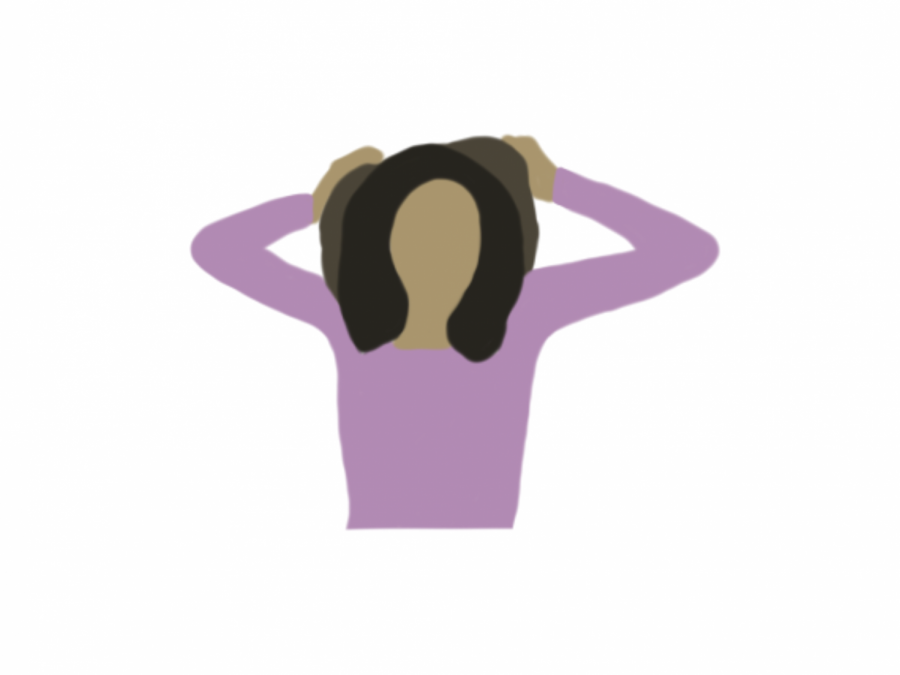Feeling stressed? Don’t pull your hair out. Use these tips from counselor Jenna Lott. Graphic by Sebastian Bush.
Coping with Election Stress
An interview with Jenna Lott
November 2, 2020
With the upcoming presidential election, protests around the country, Supreme Court confirmation hearings and a global pandemic, politics can be overwhelming right now. Inkwell spoke with Annie Wright Upper Schools counselor Jenna Lott about how students can best approach anxiety and stress regarding politics.
Political barriers at home
Lott says that if students are having trouble talking to their family about politics, “it’s important to understand the art of talking with someone or debating with someone in an appropriate way.” Lott emphasizes that you should always be kind and respectful when having a conversation. “I think learning to advocate your point, but also hearing the other person’s and being okay with that. You don’t have to convince someone of your point.”
She mentioned that not getting frustrated is key: “I think it’s hard to not get fired up about that stuff.” Lott also talked about disagreeing with the other person, “[asking yourself] how do we disagree in a way that is respectful?” She also encouraged students to talk with their counselor if they feel anxious.
Finally, Lott talked about students’ approach to having these conversations, “I think it depends on that person’s comfort level in regards to talking with their parents. Some families may not have an open communication. So the barrier would be differing political views and also a hard time communicating in general with someone’s family. But I think that it would be important to at least make the parents aware of it if they felt comfortable.”
For more information on having constructive conversations about politics, read our article titled “Tips for effectively approaching someone with different views”.
What if someone refuses to wear a mask?
If someone you know refuses to wear a mask, Lott says the best approach may be to “peacefully remove [yourself] from that situation.” According to Lott, if you feel like you need to stand up, however, “I think they could come from a place of using an “I” statement. Like, ‘I feel offended when you don’t wear a mask because it could increase someone’s risk of getting sick.’”
Lott suggests using “I” statements in conversations, as they may help in breaking down the barriers in a conversation. “‘Next time you are around me could you please wear a mask?’ So I think there is a sentence stem using “I” statements, to where I feel [I have] the least offensive ask. Or a more peaceful ask.’”
Dealing with political stress
When asked about how students should deal with stress regarding politics, Lott responded, “…it depends on the person. If a student is feeling stress from the upcoming election, they should find a caring adult that is safe to have a conversation with. They should find a group of people who share their political views, so they feel supported. Naturally, that would eliminate stress.”
Lott also discussed how we carry stress, “For me, I carry stress in my shoulders, but like what do I need to do, [maybe I need to do] breathing exercises, get more sleep, or journal. So for me, it would be this way.” However, for others it may be different, “If they can’t sleep at night, [they have] anxiety, worry, I think they should reach out to their counselor, or a caring adult that could help them learn strategies to know that in uncertain times, especially with politics, that we can only control ourselves and, what can we do to control ourselves in a way that’s less stressful.”
Lott says that the number one thing is talking about it, “the act part of it would be like finding a caring adult to talk this out because talking can help people. And finding others that support your point of view, can be comforting in uncertain times.”
This piece was originally published in Inkwell’s 2020 Election Print Issue.
